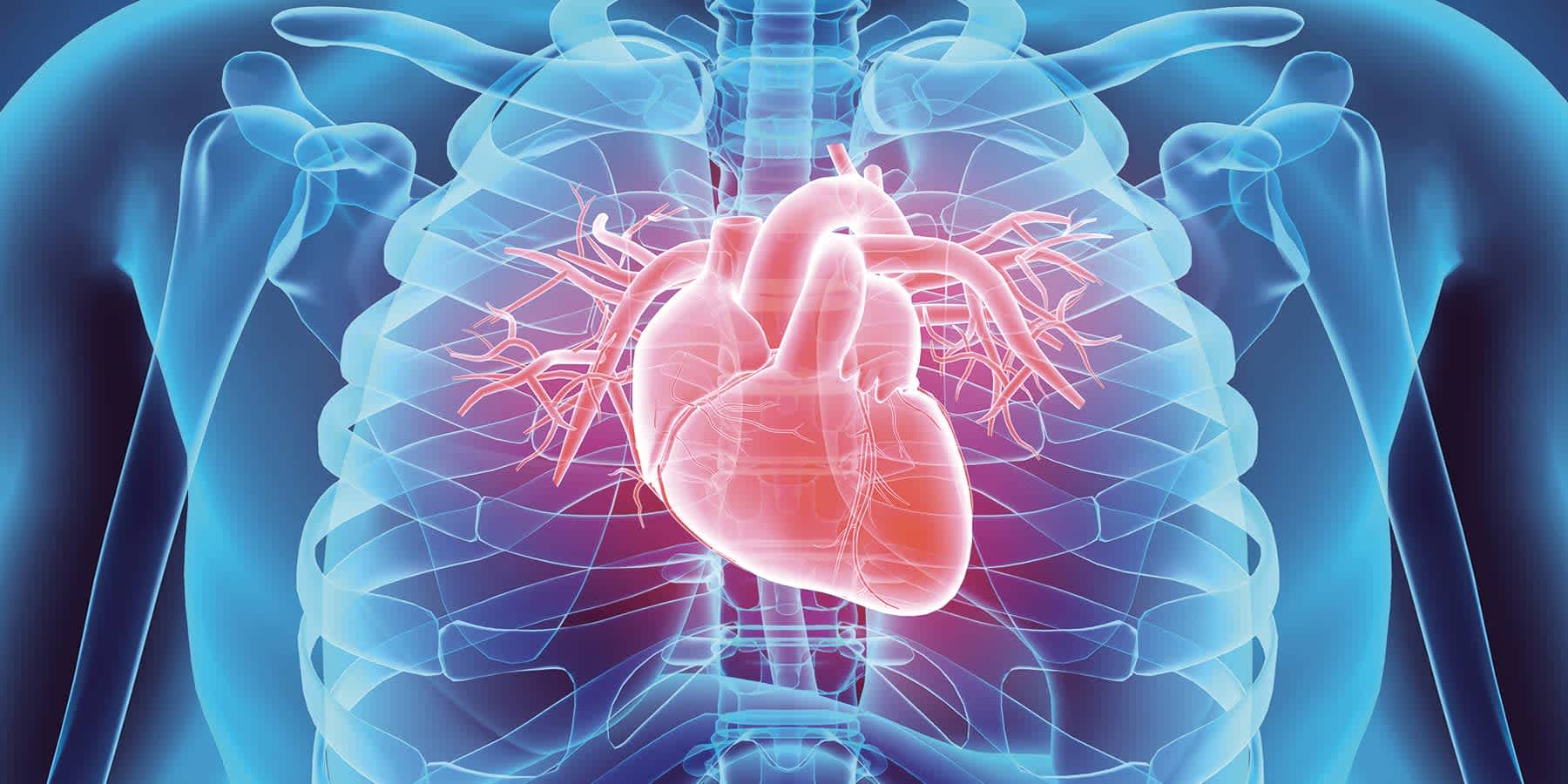Heart disease is a condition in which the heart experiences disorders. Several types of heart disease include:
1. Coronary heart disease, a heart disease that occurs due to the narrowing of blood vessels in the heart.
2. Congenital heart disease, a heart problem found since infancy, most commonly a heart valve leakage.
3. Heart infection (endocarditis), an infection in the inner lining of the heart.
4. Heart failure, a failure of the heart muscle to pump blood adequately throughout the body.
5. Arrhythmia, a heart rhythm disorder that causes an abnormal heartbeat.
Causes of Heart Disease
The causes and risk factors of heart disease depend on the type of disorder, including:
1. Coronary heart disease, caused by the narrowing of blood vessels in the heart.
2. Congenital heart disease, the exact cause is unknown. Some risk factors include a mother infected with rubella during pregnancy, a mother taking certain medications during pregnancy, or genetic abnormalities.
3. Heart infection (endocarditis), generally caused by viruses or bacteria, most commonly the bacterium Streptococcus beta-hemolyticus group A.
4. Heart failure, generally caused by coronary heart disease, infection, or heart valve abnormalities.
5. Arrhythmia, generally caused by congenital abnormalities, dead heart muscle due to coronary heart disease, excessive alcohol or caffeine consumption, stress, or side effects of certain medications.
Risk Factors for Heart Disease
Several risk factors for heart disease include an unhealthy lifestyle, such as eating high carbohydrate or fat foods, obesity, lack of physical activity, and smoking habits. Family history also plays a significant role in the risk of heart disease.
Symptoms of Heart Disease
Symptoms of heart disease include:
1. Coronary heart disease, the main symptom is chest pain, which may be accompanied by shortness of breath, pain radiating to the left arm or jaw.
2. Congenital heart disease, symptoms can include shortness of breath and bluish discoloration when crying or feeding, swelling around the eyes and legs, and failure to gain weight.
3. Heart infection (endocarditis), symptoms include fever, irregular heartbeat, shortness of breath, swelling in the abdomen or legs, and coughing.
4. Heart failure, symptoms include worsening shortness of breath during activity, worsening shortness of breath when lying down, leg swelling, and enlarged abdomen.
5. Arrhythmia, symptoms may include palpitations, chest discomfort, shortness of breath, a floating sensation, and even fainting.
Diagnosis of Heart Disease
Doctors will diagnose heart disease by starting with a complete medical interview, followed by a thorough physical examination, and additional tests if necessary. Some of these tests include:
1. Electrocardiogram (ECG), a test to see the electrical flow and rhythm of the heart. This test is performed by attaching several leads (clamp-like devices) to the patient's body. ECG is the most common test performed on those suspected of having heart disorders.
2. Echocardiography, a test to see the inside of the heart, heart pump function, and heart valve function. This test is mainly performed on those suspected of having heart failure, congenital heart disease, and heart valve abnormalities.
3. Treadmill test, a test of heart rhythm conducted while the patient is performing physical activity (treadmill). This test is generally performed to detect coronary heart disease early.
4. Angiography, a heart test performed by inserting a device that functions as a camera into the heart's blood vessels to see if there is a blockage in the heart's blood vessels.
Treatment of Heart Disease
Treatment for heart disease depends on the disorder, including:
1. Coronary heart disease, treatment aims to prevent heavier blockages in the heart's blood vessels by giving patients blood thinners (such as aspirin or clopidogrel) and nitrates. If the blockage is severe, the doctor will open the blockage in the blood vessels through a percutaneous coronary intervention (PCI).
2. Congenital heart disease, treatment is done through surgery to close the leakage in the heart valve or septum.
3. Heart infection, treatment is done with appropriate antibiotics for the type of germ causing the infection, anti-inflammatory drugs, and blood thinners.
4. Heart failure, treatment aims to reduce fluid in the body, thus reducing the heart's workload. The doctor will give medication to increase the heart's strength in pumping blood.
5. Arrhythmia, treatment aims to control the heart rhythm by giving medications that affect the heart rhythm, such as beta-blockers, diltiazem, and verapamil. If there is no improvement, the doctor will perform cardiac ablation to control the abnormal electrical flow in the heart.
Complications of Heart Disease
Heart disease must receive appropriate medical treatment and care to reduce the risk of complications. Some complications of heart disease that can occur include:
1. Aneurysm, an enlargement of the arterial wall.
2. Peripheral artery disease, a condition caused by blocked blood flow to the legs.
3. Ischemic stroke.
4. Heart failure.
5. Heart attack.
6. Sudden cardiac arrest.
Prevention of Heart Disease
For congenital heart disease, effective prevention methods are not yet found. However, for coronary heart disease, heart failure, and arrhythmia, several prevention methods can be done, including:
1. Consuming high-fiber, low-sugar, and low-fat foods.
2. Quitting smoking and avoiding exposure to cigarette smoke.
3. Regularly checking blood pressure, blood sugar, and cholesterol.
4. Engaging in physical exercise, such as jogging, cycling, and swimming, for at least 30 minutes each day.
When to See a Doctor?
If symptoms such as chest pain, shortness of breath, palpitations, or shortness of breath or bluish skin in babies, especially when feeding, occur, it is advisable to consult a doctor immediately for further examination and treatment.

Post a Comment for " Heart Disease"